The electricity system needs heating sector
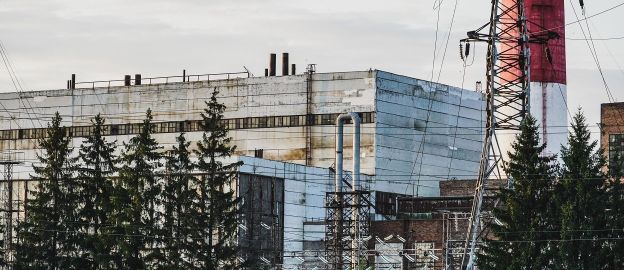
The National Power System (NPS) will face new challenges. These include the uninterrupted supply of energy to consumers when the oldest and most emission-intensive generating units are phased out, but also the efficient use of variable RES sources. District heating may be the key to solving NPS problems. In peak demand of the NPS, additional energy can be provided by cogeneration units, in times of surplus energy in the system - it can be absorbed by electric boilers producing cheap heat. The operation of CHP units can also improve the performance of electricity grids.
Read More
The electricity system needs heating sector
The National Power System (NPS) will face new challenges. These include the uninterrupted supply of energy to consumers when the oldest and most emission-intensive generating units are phased out, but also the efficient use of variable RES sources. District heating may be the key to solving NPS problems. In peak demand of the NPS, additional energy can be provided by cogeneration units, in times of surplus energy in the system - it can be absorbed by electric boilers producing cheap heat. The operation of CHP units can also improve the performance of electricity grids.

Cutting energy bills before winter (toolbox)

The upcoming winter will be difficult for many Polish households due to high costs of heat and electricity. In the latest report by Forum Energii, more than 30 concrete measures are listed. They can be implemented easily and at a low (or even none) cost before the heating season. This will reduce bills and improve the country's energy security.
Read More
Cutting energy bills before winter (toolbox)
The upcoming winter will be difficult for many Polish households due to high costs of heat and electricity. In the latest report by Forum Energii, more than 30 concrete measures are listed. They can be implemented easily and at a low (or even none) cost before the heating season. This will reduce bills and improve the country's energy security.

Is the Kremlin turning off the gas tap? Time to exclude gas and coal from households
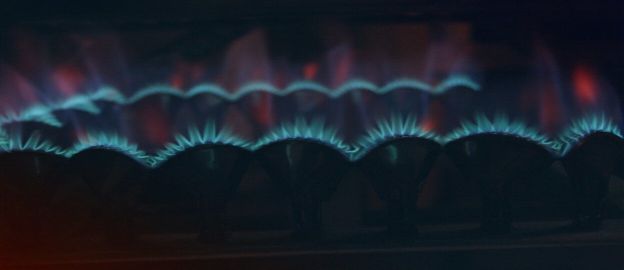
How to prepare households for an energy war with Russia? Gazprom is suspending gas supplies to Poland under the Yamal contract. This is no great surprise. At the end of this year, Poland was going to give up buying Russian gas anyway. Physically, there is unlikely to be a shortage of gas, but Poland is entering a period of high prices, which will limit the use of this raw material. The role of the state should be to wisely support society in smoothly passing through the crisis. Without reducing demand in sectors where it is possible, this will be difficult.
Read More
Is the Kremlin turning off the gas tap? Time to exclude gas and coal from households
How to prepare households for an energy war with Russia? Gazprom is suspending gas supplies to Poland under the Yamal contract. This is no great surprise. At the end of this year, Poland was going to give up buying Russian gas anyway. Physically, there is unlikely to be a shortage of gas, but Poland is entering a period of high prices, which will limit the use of this raw material. The role of the state should be to wisely support society in smoothly passing through the crisis. Without reducing demand in sectors where it is possible, this will be difficult.
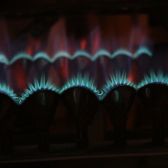
Clean heat as an engine for the Polish economy
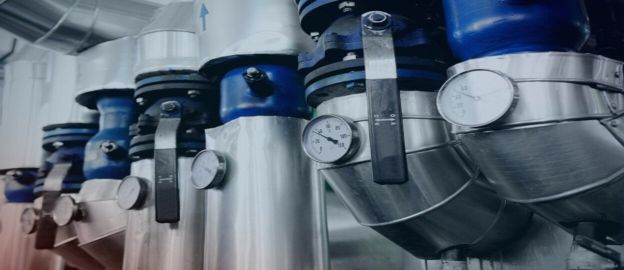
A new approach to heating is needed in Poland. It is currently a neglected area where the necessary changes and modernisation have been postponed for years. As a result, every winter we have the most polluted air in the European Union and the Polish district heating system is on the verge of collapse. The costs and scale of the investments needed are enormous, but further delays will lead to an even higher prices.
Read More
Clean heat as an engine for the Polish economy
A new approach to heating is needed in Poland. It is currently a neglected area where the necessary changes and modernisation have been postponed for years. As a result, every winter we have the most polluted air in the European Union and the Polish district heating system is on the verge of collapse. The costs and scale of the investments needed are enormous, but further delays will lead to an even higher prices.
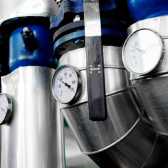
Poland has spent more than a trillion zloty (EUR 220 billion) on fossil fuel imports since 2000
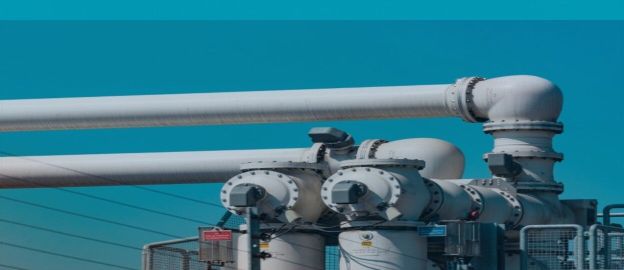
In recent months, rising energy prices have caused panic among policymakers. Gas and coal prices on world markets are at record highs, and crude oil is also becoming more expensive. In addition, Poland has become one of the EU countries most dependent on fossil fuel imports.
Read More
Poland has spent more than a trillion zloty (EUR 220 billion) on fossil fuel imports since 2000
In recent months, rising energy prices have caused panic among policymakers. Gas and coal prices on world markets are at record highs, and crude oil is also becoming more expensive. In addition, Poland has become one of the EU countries most dependent on fossil fuel imports.
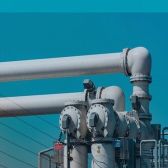
10 steps to overcome the energy crisis
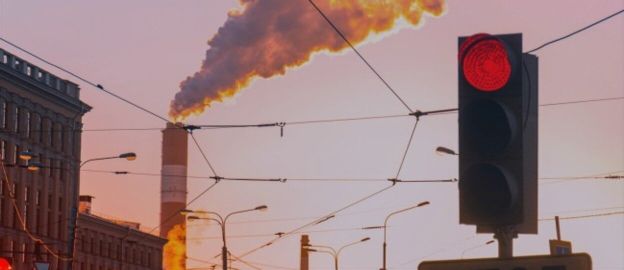
The prices of coal, gas, and CO2 are reaching record levels while the price for electricity is galloping, causing panic among politicians, energy consumers, and institutions responsible for maintaining Poland’s energy security.
Read More
10 steps to overcome the energy crisis
The prices of coal, gas, and CO2 are reaching record levels while the price for electricity is galloping, causing panic among politicians, energy consumers, and institutions responsible for maintaining Poland’s energy security.

The district heating company of the future

Heat in Poland becomes more expensive. This is a result of an outdated business model in district heating, which rewards the company for as much heat production as possible and does not encourage to modernize the infrastructure. Meanwhile, consumers want to pay as little as possible for energy and heat. One of the key elements of the game for lower bills and lower CO2 emissions is becoming energy efficiency of heating systems and buildings. This completely changes the market conditions in which heating companies have to find themselves. If we do not want them to collapse - it is necessary to implement a new business model in district heating. Forum Energii writes about how it could look like in its latest report.
Read More
The district heating company of the future
Heat in Poland becomes more expensive. This is a result of an outdated business model in district heating, which rewards the company for as much heat production as possible and does not encourage to modernize the infrastructure. Meanwhile, consumers want to pay as little as possible for energy and heat. One of the key elements of the game for lower bills and lower CO2 emissions is becoming energy efficiency of heating systems and buildings. This completely changes the market conditions in which heating companies have to find themselves. If we do not want them to collapse - it is necessary to implement a new business model in district heating. Forum Energii writes about how it could look like in its latest report.

FIT FOR 55 - what will the package contain?

On 14 July, the European Commission will publish the Fit for 55 package consisting of several legislative proposals. This will officially launch the discussion on measures to achieve the interim EU climate neutrality target, i.e. a 55% reduction of CO2 emissions compared to 1990. Before these rules finally come into force, they have to be accepted by EU member countries (i.e. the Council) and the European Parliament. The negotiations will take at least a year, most likely - two. The changes will not be law until 2024, but it is high time we considered how to implement them for the benefit of the climate and the economy.
Read More
FIT FOR 55 - what will the package contain?
On 14 July, the European Commission will publish the Fit for 55 package consisting of several legislative proposals. This will officially launch the discussion on measures to achieve the interim EU climate neutrality target, i.e. a 55% reduction of CO2 emissions compared to 1990. Before these rules finally come into force, they have to be accepted by EU member countries (i.e. the Council) and the European Parliament. The negotiations will take at least a year, most likely - two. The changes will not be law until 2024, but it is high time we considered how to implement them for the benefit of the climate and the economy.

NABE - the hibernatus of the Polish energy sector

In the film with Louis de Funès, a separate, unreal world was created for the titular hibernatus to make him feel comfortable in the new reality. With the National Energy Security Agency (NABE) that the government is proposing for coal power, it is similar. The ring-fencing of coal assets is necessary because they are making increasing losses, the power companies are in debt, and with the coal burden in the new reality they are running out of finance to invest. However, without a cost-benefit analysis for the economy and society, or an assessment of the risks, NABE, instead of unlocking the transition, may hibernate it and introduce chaos that will threaten Poland's energy security.
Read More
NABE - the hibernatus of the Polish energy sector
In the film with Louis de Funès, a separate, unreal world was created for the titular hibernatus to make him feel comfortable in the new reality. With the National Energy Security Agency (NABE) that the government is proposing for coal power, it is similar. The ring-fencing of coal assets is necessary because they are making increasing losses, the power companies are in debt, and with the coal burden in the new reality they are running out of finance to invest. However, without a cost-benefit analysis for the economy and society, or an assessment of the risks, NABE, instead of unlocking the transition, may hibernate it and introduce chaos that will threaten Poland's energy security.

The purpose of the EU-ETS and its pending reforms

Since the beginning of the year, CO2 emission allowance prices have risen by 70%, from EUR 30 to over EUR 50 per tonne. The rate of this increase has again triggered discussion in Poland on the purpose of the Emissions Trading System’s (EU-ETS) existence. Meanwhile, the EU discussion on the ETS, which is due to begin shortly, will not be about whether to abolish the system, but how to reform it so that the EU can achieve its decarbonization goals. Carbon pricing will be the most important tool for achieving the EU's 55% emissions reduction target in 2030. In this text, we explain the system’s basic operational principles and highlight expected discussion topics and possible upcoming changes.
Read More
The purpose of the EU-ETS and its pending reforms
Since the beginning of the year, CO2 emission allowance prices have risen by 70%, from EUR 30 to over EUR 50 per tonne. The rate of this increase has again triggered discussion in Poland on the purpose of the Emissions Trading System’s (EU-ETS) existence. Meanwhile, the EU discussion on the ETS, which is due to begin shortly, will not be about whether to abolish the system, but how to reform it so that the EU can achieve its decarbonization goals. Carbon pricing will be the most important tool for achieving the EU's 55% emissions reduction target in 2030. In this text, we explain the system’s basic operational principles and highlight expected discussion topics and possible upcoming changes.

Heat electrification in Poland | The path to clean heat

Despite the government's declarations, progress in improving air quality in Poland has been poor. The rate of modernisation of buildings is slow, and public funds continue to support the replacement of old coal boilers with other coal-fired options, which other European countries have phased out. Meanwhile, a huge stream of European money will be flowing towards 'clean heat' in the coming years. In the newest analysis from the Forum Energii, we explain why it is worth betting on electrification of heating, identify which technologies have a future, and explore how this will affect the energy system.
Read More
Heat electrification in Poland | The path to clean heat
Despite the government's declarations, progress in improving air quality in Poland has been poor. The rate of modernisation of buildings is slow, and public funds continue to support the replacement of old coal boilers with other coal-fired options, which other European countries have phased out. Meanwhile, a huge stream of European money will be flowing towards 'clean heat' in the coming years. In the newest analysis from the Forum Energii, we explain why it is worth betting on electrification of heating, identify which technologies have a future, and explore how this will affect the energy system.

Five energy projects that must happen in 2021

The future begins today, not tomorrow. The year 2020 was unusual in many ways, so many people will be relieved that it is now ending. But in terms of the energy transition, it was a watershed year. The European Union reached agreement on the European Green Deal. In Poland, the government and labour unions openly admitted that Poles need to talk about the end of the coal era. The energy sector in the country is at a crossroads and it is time for it to choose the right path for its further operation and development in 2021.
Read More
Five energy projects that must happen in 2021
The future begins today, not tomorrow. The year 2020 was unusual in many ways, so many people will be relieved that it is now ending. But in terms of the energy transition, it was a watershed year. The European Union reached agreement on the European Green Deal. In Poland, the government and labour unions openly admitted that Poles need to talk about the end of the coal era. The energy sector in the country is at a crossroads and it is time for it to choose the right path for its further operation and development in 2021.
